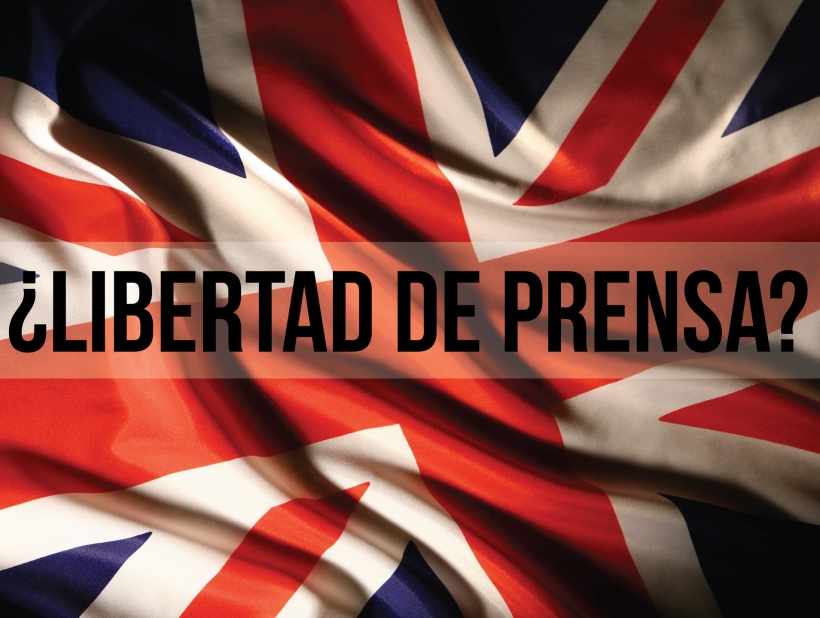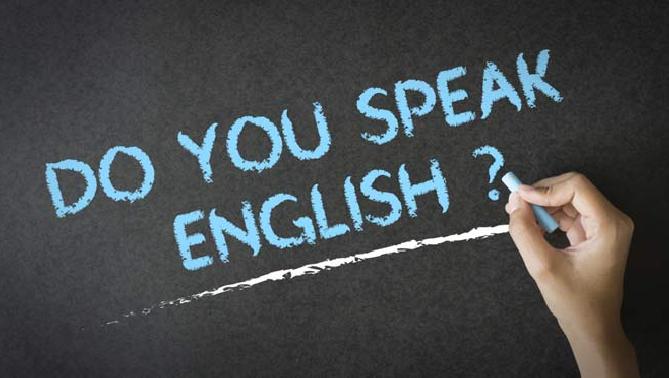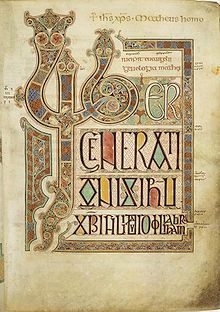Ortografía.Gramática.Tiempos verbales
Español Inglés
Frases célebres en Inglés
“The mere formulation of a problem is far more essential than it’s solution, which may be merely a matter of mathematical or experimental skills. To raise new questions, new possibilities, to regard old problems from a new angle requires creative imagination and marks real advances in science.”
Albert Einstein
***********************************************************************************************************************************************
Traducción:»La mera formulación de un problema es mucho más importante de lo que de solución, que puede ser simplemente una cuestión de habilidades matemáticas o experimentales. Para plantear nuevas preguntas, nuevas posibilidades, considerar los viejos problemas desde un nuevo ángulo requiere imaginación creativa y marca verdaderos avances en la ciencia «.
Albert Einstein
PALABRA Nº 7: ‘RASGOS’
TRADUCCIÓN: sustantivos: feature, trait, characteristic, streak, quirk, vein
Spelling free
The English spelling was set to about the fifteenth century. Although the language has since undergone major phonetic changes, especially in the vocal, which makes the spelling is not a reliable guide to pronunciation. As an example we can consider the sequence-ea-, which has seven different pronunciaciones16 only partially predictable from the phonetic context free
transcription AFI Sound Spelling Meaning
[e], [ɛ] head, health [hed] / [hɛd], [helθ] / [hɛlθ] ‘head’, ‘health’
[i ː] heap, heat [hi ː p] [hi ː t] ‘lot’, ‘heat’
[ ɜ ː], [ɝ] heard, hearse [hɜ ː d] / [hɝd], [hɜ ː s] / [hɝs] ‘ear’ (hearing), ‘hearse’
[ɑ ː], [ɑɹ] heart, hearken [ hɑ ː t] / [hɑɹt], [hɑ kən ː] / [hɑɹkən] ‘heart’, ‘listen’
[iə] zeal, heal [ziəl], [hiəl] ‘zeal’, ‘heal’
[eɪ] break, great, steak [bɹeɪk], [gɹeɪt], [steɪk] ‘break’, ‘great’, ‘steak’
[ieɪ] create [kɹieɪt] ‘create’ in
grammar
English has many of the typical features of European languages. The name has difference between singular and plural. In modern English unlike its predecessor Old English name does not distinguish gender or case. Case differences are restricted to the pronoun in modern English, such as for example in the Romance languages.
In the English verbal system, like the German and the Romance languages, has undergone a similar evolution . They have created «made perfect ways» to express the perfect look and «periphrastic forms» with the verb be to express progressive or continuous aspect. Another similarity is the development of future forms from auxiliary verbs. An important difference between English and other Germanic and Romance languages is the weakening of the subjunctive mood. . Likewise the English, like German, Dutch or Romance languages, definite articles created from genuine demonstrative forms
Tenses In English free
four fundamental tenses: present, past and future and conditional. These three phases are combined with three aspects (imperfective, continuous, perfective) aspect combinations are possible four ([-perf] [-cont] [-perf] [-cont] [-perf] [-cont] and [-perf] [-cont]). The combinations did earlier appearance time and result in a significant number of tenses: Simple free
that lack auxiliary syntactically and including the following: Simple
not continuous: Present simple, which is recognized by no carry suffixes TAM at roots, Past simple, including a brand past the root, usually-ed in regular verbs and may include-in and even umlaut in irregular or strong verbs, Simple Future, marked regularly by an auxiliary (will, Shall or their negative forms). Conditional regularly marked by the auxiliary would last long (or negatively)
Continuous, generally equivalent to «auxiliary (be) + gerund» in Spanish, denote actions that are being made at the time spoken. Morphologically continuous time ending in-ing: Present continuous, Past continuous
compounds that denote completed actions and therefore perfective aspect: Compounds
non-continuous. Present perfect, Past perfect, Future perfect
Continuous similar to the simple continuous: Present perfect continuous, perfect continuous Past
The following table summarizes the earlier times, to write the word ‘write’: free
simple times
(Simple tenses ) compounds times
(Perfect tenses)
– continuous + continuous – Present continuous + continuous
I write I am writing I have written I have been writing
Past I wrote I was writing I had written I Had been writing
Future I shall / will write I shall / will be writing I shall / will have written I shall / will Have Been writing
Conditional I would write I would be writing I Would have written I would Have Been writing free
verbs past
Depending on whether they are regular or not, verbs have different pasts, which are two: Simple
Past, equivalent to any past in Spanish < . br> Past participle, participle in Spanish equivalent to
The past simple is almost always accompanied by time expressions like ‘yesterday, last (month, week, year, etc.), a week ago. » Both past participle of regular verbs ending in ‘-ed’. The rules for forming the past simple of these verbs are: free
If the verb ends in ‘-y’ after a consonant change the ‘-y’ to ‘i’ and add ‘-ed’: . cry / cried
If the verb is one syllable and ends in a consonant after a vowel, double the final consonant and add ‘-ed’, except when the verb ends in ‘x’: plan / planned, but . ax / axed
If the verb has an accent on the final syllable double the last consonant and add ‘-ed’: permit / permitted
If the verb ends in ‘-e’, just add ‘-d’. : love / loved
Add ‘-ed’ to all other verbs.. play / played free
The Irregular verbs gotten use has declined in the UK over the past centuries, but continues in the United States. Although in reality there are no definitive rules «to add» or «remove» in a word that is the group of «irregular verbs» thus for studying language are always recommended to learn them as such as write, because as mentioned before, there is no definitive reference in the «irregular verbs» 17
Infinitive free
As verb infinitives, they begin with the word to, for example: < br>
To walk – walk
To jump – jump
To bite – bite
To speak – speak free
free
Many verbs prepositional verbs have other meanings when they added a preposition or an adverb (up, down, in, out, around, etc.). later. Also known as phrasal verbs, although this term is falling into disuse, [citation needed] change the definition of the verb, or give information on the direction. For example: free
Look up – look in the dictionary / list
Look after – care
Look around – look everywhere
Look over – Look
check back – look Look for
back – they look
Private free
Pronouns Personal pronouns in English are:
Spanish Nominativo1 Reflective Objective Genitive (attributive) Genitive (predicative)
I I me my mine myself
you, you you you your yours yourself
him have his
him his himself she her her hers herself her
ello2 or so / a —- it it itself its three
us we us our ours ourselves
you, you you4 you your yours yourselves
them ellas5 They theirs Their them Themselves
Ortografía
La ortografía del inglés se fijó aproximadamente hacia el siglo XV. Aunque desde entonces la lengua ha sufrido importantes cambios fonéticos, especialmente en las vocales, lo cual hace que la ortografía no sea una guía segura para la pronunciación. A modo de ejemplo podemos considerar la secuencia -ea-, que tiene hasta siete pronunciaciones16 diferentes sólo parcialmente predecibles a partir del contexto fonético:
-
Sonido Ortografía transcripción AFI Significado [e], [ɛ] head, health [hed]/[hɛd], [helθ]/[hɛlθ] ‘cabeza’, ‘salud’ [iː] heap, heat [hiːp], [hiːt] ‘montón’, ‘calor’ [ɜː], [ɝ] heard, hearse [hɜːd]/[hɝd], [hɜːs]/[hɝs] ‘oído’ (de oír), ‘coche fúnebre’ [ɑː], [ɑɹ] heart, hearken [hɑːt]/[hɑɹt], [hɑːkən]/[hɑɹkən] ‘corazón’, ‘escuchar’ [iə] zeal, heal [ziəl], [hiəl] ‘celo’, ‘sanar’ [eɪ] break, great, steak [bɹeɪk], [gɹeɪt], [steɪk] ‘romper’, ‘grandioso’, ‘bistec’ [iˈeɪ] create [kɹiˈeɪt] ‘crear’
Gramática
El inglés presenta muchos de los rasgos típicos de las lenguas europeas. El nombre presenta diferencia entre singular y plural. En inglés moderno a diferencia de su antecesor el inglés antiguo el nombre no hace distinciones de género o caso. Las diferencias de caso se restringen en inglés moderno al pronombre, tal como sucede por ejemplo en las lenguas romances.
FUENTE QUE UTILIZO: http://es.wikipedia.org
En el sistema verbal el inglés, al igual que el alemán y las lenguas romances, ha sufrido una evolución similar. Se han creado «formas compuestas de perfecto» para expresar el aspecto perfecto y «formas perifrásticas» con el verbo ser para expresar el aspecto progresivo o continuo. Otra similaridad es el desarrollo de formas de futuro a partir de verbos auxiliares. Una diferencia importante entre el inglés y otras lenguas germánicas y romances es el debilitamiento del modo subjuntivo. Igualmente el inglés, al igual que el alemán, el holandés o las lenguas románicas, ha creado artículos definidos genuinos a partir de formas demostrativas.
Tiempos verbales
En inglés hay cuatro tiempos fundamentales: presente, pasado y futuro y condicional. Estos tres tiempos se combinan con tres aspectos (imperfectivo, continuo, perfectivo), las combinaciones de aspecto posible son cuatro ([-perf][-cont],[-perf][-cont], [-perf][-cont] y [-perf][-cont]). Las combinanciones de tiempo y aspecto anteriores dan lugar a un número importante de tiempos verbales:
- Simples que sintácticamente carecen de auxiliar e que incluyen los siguientes:
- Simples no continuos: Present simple, que se reconoce por no llevar sufijos TAM en la raíz; Past simple, que incluye una marca de pasado en la raíz, usualmente -ed en los verbos regulares y puede incluir -en e incluso umlaut en los verbos irregulares o fuertes; Future simple, marcado regularmente mediante un auxiliar (will, shall o sus formas negativas); Conditional, marcado regularmente por el auxiliar en tiempo pasado would (o su forma negativa).
- Continuos, equivalentes en general a «auxiliar (ser) + gerundio» en español, denotan acciones que se están realizando en el momento en que se habla. Morfológicamente los tiempos continuos terminan en -ing: Present continuous; Past continuous
- Compuestos, que denotan acciones terminadas y por tanto aspecto perfectivo:
- Compuestos no-continuos: Present perfect; Past perfect; Future perfect.
- Continuos, similares a los simples continuos: Present perfect continuous; Past perfect continuous
El siguiente cuadro resume los tiempos anteriores, para el verbo write ‘escribir’:
-
Tiempos simples
(Simple tenses)Tiempos compuestos
(Perfect tenses)– continuous + continuous – continuous + continuous Present I write I am writing I have written I have been writing Past I wrote I was writing I had written I had been writing Future I shall/will write I shall/will be writing I shall/will have written I shall/will have been writing Conditional I would write I would be writing I would have written I would have been writing
Verbos en pasado
Dependiendo de si son regulares o no, los verbos tienen distintos pasados, que son dos:
- Pasado simple, equivalente a cualquier pasado en español
- Pasado del participio, equivalente al participio en español.
El pasado simple casi siempre va acompañado de expresiones de tiempo como: ‘ yesterday, last (month, week, year, etc), a week ago’. Tanto el pasado como el participio de los verbos regulares acaba en ‘-ed’. Las reglas para formar el pasado simple de estos verbos son las siguientes:
- Si el verbo termina en ‘-y’ después de una consonante cambia la ‘-y’ a ‘i’ y agrega ‘-ed’: cry / cried.
- Si el verbo es de una sílaba y termina en una consonante después de un vocal, dobla la última consonante y agrega ‘-ed’, excepto cuando el verbo termina en ‘x’: plan / planned, pero ax / axed.
- Si el verbo tiene acento en la sílaba final dobla la última consonante y agrega ‘-ed’: permit / permitted.
- Si el verbo termina en ‘-e’, solo agrega ‘-d’: love / loved.
- Agrega ‘-ed’ a todos los demás verbos: play / played.
Verbos irregulares
El uso de gotten se ha disminuido en el Reino Unido durante los últimos siglos, pero continúa en los Estados Unidos. Aunque en realidad no existen reglas definitivas sobre «que agregar» o «que quitar» en una palabra que sea del grupo de «verbos irregulares», por ende para los que estudian el idioma siempre se les recomienda que se las aprendan tal cual como se escriben, ya que como se mencionó antes, no existe un referente definitivo en los «verbos irregulares».17
Infinitivo
En cuanto a los verbos infinitivos, éstos empiezan con la palabra to, por ejemplo:
- To walk – caminar
- To jump – saltar
- To bite – morder
- To speak – hablar
Verbos preposicionales
Muchos verbos tienen otros significados cuando se les añaden una preposición o un adverbio (up, down, in, out, around, etc.) después. Conocidos también como phrasal verbs, aunque este término está quedando en desuso,[cita requerida] cambian la definición del verbo, o dan información sobre la dirección. Por ejemplo:
- Look up – buscar en el diccionario/un listado
- Look after – cuidar
- Look around – mirar por todos lados
- Look over – revisar
- Look back – mirar hacia atrás
- Look for – buscar
Pronombres personales
Los pronombres personales en inglés son:
| Español | Nominativo1 | Objetivo | Reflexivo | Genitivo (atributivo) | Genitivo (predicativo) |
|---|---|---|---|---|---|
| yo | I | me | myself | my | mine |
| tú, usted | you | you | yourself | your | yours |
| él | he | him | himself | his | his |
| ella | she | her | herself | her | hers |
| ello2 o eso/a | it | it | itself | its | —-3 |
| nosotros | we | us | ourselves | our | ours |
| vosotros, ustedes | you4 | you | yourselves | your | yours |
| ellos, ellas5 | they | them | themselves | their | theirs |































